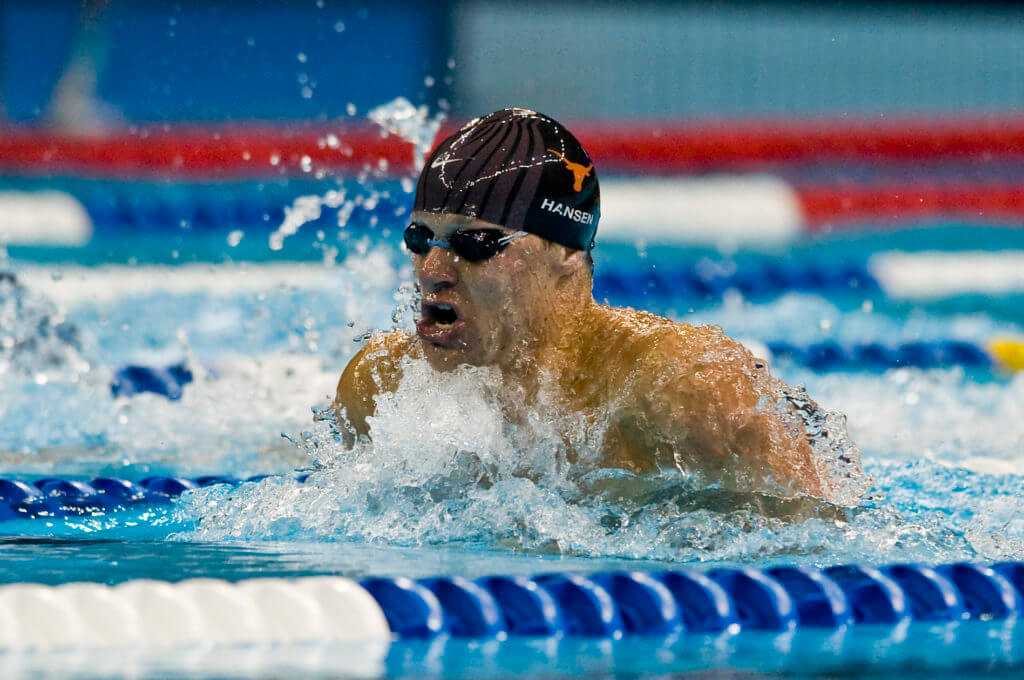3 Qualities That Set Lifelong Swimmers Apart From The Rest

3 Qualities That Set Lifelong Swimmers Apart From The Rest
By Sadie Jones, Swimming World Intern
Swimming is unlike most sports because there are both individual and team aspects that athletes are forced to encounter. Throughout a swimmers career, different facets of the sport are prioritized. As athletes are younger, they compete for the fun and sense of community the sport brings to the table. As swimmers get older and more serious, it becomes more about dropping time and making the next fastest meet. Then there are lifelong swimmers. These are the people that have gone through and enjoyed these different phases, and solely love the sport because of their experiences they have had with it.
Dedication
Whether it is getting up at 4 o’clock in the morning for practice or finding time after work to get some laps in, swimmers prove their dedication to their sport every day by just jumping in the pool. Every swimmer has had many days when practice is the last thing they want to do, but ignoring that feeling and getting the set done, is what reminds them of their love for the sport. Dedicated swimmers find what works for them. Maybe they strive for competition. Maybe they do it simply to stay in shape. Whatever the reason, lifelong swimmers make swimming work for them, while also constantly keeping their goals in sight.
“We are what we repeatedly do. Excellence, therefore, is not an act but a habit.” – Aristotle
Willingness To Fail
Like with anything, failure is a part of the process in swimming. It is important to not only be able to celebrate success, but also recognize and grow from our encounters with failure. It is a fact that athletes that have swam most of their lives have encountered the act of failing many times, whether it was at a big meet or even swimming in a lane at practice all by themselves. Failure can feel paralyzing. Lifelong swimmers use their coaches, friends, and experiences to come back even stronger after defeat.
“Wins and losses come a dime a dozen. But effort, nobody can judge effort. Because effort is between you and you. Effort ain’t got nothing to do with nobody else.” – Ray Lewis
Good Sportsmanship
From a very young age, swimmers are taught about good sportsmanship and how to implement it into their everyday lives during practices and meets. They are taught to shake hands with their opponents after each race and to cheer for their teammates. Throughout an individual’s swim journey, it can be difficult to remember the things we were taught at the beginning. Competition often distracts athletes from the core value of sportsmanship. As time goes on, continuing to practice good sportsmanship becomes less about physically shaking hands with your competition and congratulating the person that beat you. Instead, it is focused on setting a good example for those around you in everything you do. Practicing good sportsmanship is a reminder that the goal of the sport is to have fun and both win and lose as a team. Lifelong swimmers constantly show the importance of good sportsmanship in their actions.
“Talent wins games, but teamwork and intelligence wins championships.”- Michael Jordan
Lifelong swimmers were all taught these three qualities through years of experiencing the sport firsthand and through the other athletes’ eyes around them. The values of dedication, willingness to fail, and good sportsmanship are instilled in swimmers and make them better people in and out of the pool.
All commentaries are the opinion of the author and do not necessarily reflect the views of Swimming World Magazine nor its staff.




The self discipline, that has to be part of the dedication to achievement in swimming, as in other sports, is part of the personal development that persists throughout your lifetime. I remain grateful for that well in my 80’s. Just wish the pools were open once more. All this walking does not have the same effect!